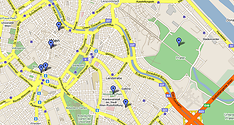
CURRENT PROJECTS
Humans and Recommender Systems – Towards a Mutual Understanding
The department is involved in an interdisciplinary research project funded by the FWF, which started on September 1, 2021.
Following the digital mediamorphosis, music enthusiasts are confronted with an overabundance of listening options on the internet. Recommender systems attempt to remedy this situation and almost always work via “collaborative filtering,” i.e., through references to “similar” content or “similarly” behaving recipients. In the programming of streaming playlists, the tangible interests of the powerful music industry also play a role. What remains unconsidered, both here and there, are the situational characteristics of individual musical interests. (Depending on the place, time, mood, etc., each recipient wants to listen to different music.) In this project, the music selection behaviour of people and the corresponding influencing factors will be (better) researched. To do this, an adaptive smartphone app will be used, which should lead to an increasingly better understanding between the recommendation system and the recipient through the exchange of information.
Project leader: Eva Zangerle (University of Innsbruck)
Cooperative partners: mdw (Michael Huber), Johannes Kepler University Linz (Markus Schedl), TU Vienna (Peter Knees), University of Innsbruck (Marcel Zentner).
Duration: September 2021 to August 2024
Project website: https://humrec.github.io/
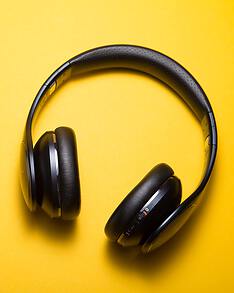
Music Sociology As Collective Action: The research partnership of Herta and Kurt Blaukopf
Project leaders: Rosa Reitsamer (2020 - 2023), Sarah Chaker (since 2020), Golan Gur (since 2024)
Project team: Raphaela Viehböck (since 2020), Mona Torinek (library research), Mira Perusich (interview transcription)
Duration: 2020 - 2024
Financial support: Gender|Queer|Diversity Call_mdw 2020, Rectorate (mdw), Department of Music Sociology (mdw)
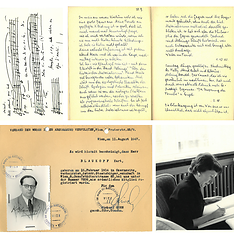
First-Year Students in Music Education
Project leader: Michael Huber
The aim of this project is to investigate the musical attitudes and behaviours (preferences, activities, educational paths, family backgrounds, motivations for choosing a course of study, etc.) of first-year students in music education. Of interest is not only the current state of these attitudes, but also their presumed change over longer periods of time in the sense of an increasing diversification of musical interests and the associated breaking down of genre barriers. This study is conducted by means of a questionnaire survey at the beginning of each academic year.
Duration: 1998 ad infinitum
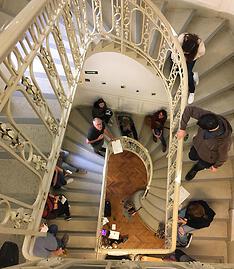
QUART – Quality of Arts (QUART I – III)
QUART I + II
Project leader: Rosa Reitsamer
Researcher: Rainer Prokop
Duration: since 2015
QUART III
Project leader: Rosa Reitsamer
Implementation: Rainer Prokop
Duration: since 2016

Completed Projects
MUDIL – Musical Distance Learning: Experiences, Impacts, Perspectives
Project leaders: Wilfried Aigner, Michaela Hahn, Michael Huber
This cooperative study is aimed at music teachers and educators at the secondary school level and is being implemented together with the Institute for Music Pedagogical Research, Music Didactics, and Elementary Music Making at the mdw. In this project, experiences with musical distance learning throughout Austria and South Tyrol will be surveyed empirically. The central question is: “What exactly works for whom, and how well does it work?” Based on this, framework conditions and methodological approaches will be analysed for the possible further development of pedagogical and didactical concepts of musical learning.
Duration: June 2020 to February 2023
The website lieblingslied.at was created with the aim of offering a psychosocial prevention measure during the physical distancing period in Austria due to COVID-19. It provided a free preventive music therapy offer between 20 April 2020 and 20 April 2021. After registering on the website, participants were asked to choose their favourite song. That song was then performed for them at an online appointment with a music therapist, followed by a conversation. The music sociology research accompanying the project provided valuable insights into this new form of music therapy and into how people use music in times of social crises. The participants showed a high level of awareness of the mood-regulating effects of music and emphasized the connecting and reinvigorating element of communal listening to music. The potential of low-threshold preventive-therapeutical music provision without co-presence was expressed in the consistently positive feedback of the participants. Despite reports about the project in newspapers and on the radio, registrations were below expectations. Those who participated were mainly highly educated music lovers.
Project coordinators: Thomas Stegemann (mdw, WZMF), Manuel Goditsch, Anna Feichter (ÖBM), Hannah Riedl (mdw, WZMF) and Catrina Cassidy (ÖBM).
Collaborator: Michael Huber (IMS)
Duration: April 2020 to April 2021
Project website: lieblingslied.at
Out and About: The Music Diary
An empirical research project on music listening in public spaces.
Project leader: Michael Huber
Collaborator: Christina Jakovljevic-Wippel
Duration: October 2014 to October 2016
Tacit Knowing in the Work of Music Composition
This project analyses the cognitively and bodily anchored knowledge components composers use to cope with different artistic, technical, organizational, and emotional challenges.
Project leader: Tasos Zembylas
Collaborators: Martin Niederauer
Duration: November 2013 to October 2016
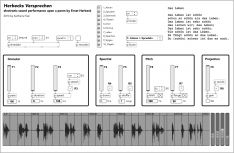
Why Music 2015
Musical Behaviour in the Digital Mediamorphosis
Project leader: Michael Huber
Collaborators: Markus Bönisch, Raphaela Casata
Cooperation partner: Social Science Study Society
Duration: February 2015 to January 2016
Music University as Transcultural and Intercultural Space:
Educational careers of international students at the mdw
Project lead and implementation: Regina Sperlich
Due to the high proportion of international students, music universities are now transcultural and intercultural spaces that attract international students. Taking the mdw – University of Music and Performing Arts Vienna as an example, this study aims to shed light on the opportunities and risks of transculturality and interculturality with regard to the educational and incipient professional careers of international students.
Methodologically, 10 problem-cantered interviews with students and 5 expert interviews with teachers and administrative staff were conducted and the interviews analysed using MAXQDA software.
Cooperation partner: mediacult
Duration: November 2014 to May 2015
Quality of the Arts (QUART)
An exploratory case study on artistic knowledge and the evaluation of artistic performance at the mdw
Project leader: Rosa Reitsamer
Collaborators: Martin Niederauer, Rainer Prokop
Duration: June to December 2014
Study Music – And Then?
On the Professional Situation of mdw Graduates
Project leader: Alfred Smudits
Collaborators: Sarah Chaker, Rosa Reitsamer, Elisabeth Mayerhofer, Michael Huber, Tasos Zembylas
Duration: May 2012 to May 2013
Working Group Arbeitskreis Kultur.Forschung.mdw
Interdisciplinary Exchange
Project leader: Alfred Smudits
In accordance with the problems that characterise the initial situation, the Culture.Research.mdw working group strives for the following goals:
- The promotion of dialogue between different disciplines at the mdw
- Identification of similarities and differences regarding traditions, theories, and methods
- Reduction of prejudices and misunderstandings, which are mostly based on a lack of information
- Foundations for fruitful cooperation
- A contribution to the fundamental discussion in cultural studies
- Pluralistic contextualization: working out the prerequisites for transdisciplinary projects
- As a “physical” end product: the creation of a “manual”: Culture – Research at the mdw.
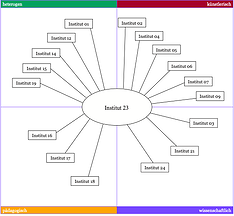
What's the use of music?
The musical behaviours, preferences, and attitudes of Austrians
Project leader: Michael Huber
The project has been successfully completed and was able to generate a number of insightful findings on Austrian musical life.
The study, with concrete figures and many other results, can be purchased now for € 20.– Please order by contacting musiksoziologie@mdw.ac.at
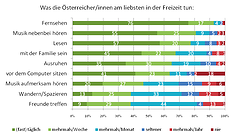
Opera you can Touch
Project leader: Michael Huber
Musik zum Anfassen (“Music you can Touch”) is an experimental, dialogical music education project under the patronage of Nikolaus Harnoncourt. Specifically, the opera The Rake’s Progress was elaborated on in several workshops with students from the cooperative secondary school Am Schöpfwerk during the 2008-09 school year.
The department accompanied this project with an evaluation that collected the musical behaviours and preferences of the students in an empirical survey (a) before the project, (b) immediately after, and (c) one year later.
Client: Musik zum Anfassen / Dietmar Flosdorf
In the summer of 2009, Canadian exchange student Jason Neudorf – following in the footsteps of his compatriot, R. Murray Schafer – mapped the soundscapes of the city of Vienna.
